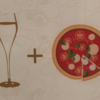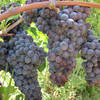Sicilian Food at its Best
I just returned from a cruise around Sicily – my fourth trip in the last two years. (See The Island in the Sun Parts I and Il, April 18 and May 3.) All my grandparents were born there and I grew up in the same house with my mother’s mother. She was from Palermo and came to America as a teenager. She was a very good cook and made many Sicilian specialties for me.
I have a fondness for things Sicilian, especially the food. It is difficult to get genuine Italian food in this country, but I thought that Sicilian food like my grandmother’s was impossible to find, until I met Salvatore!
When I was working at I Trulli, Salvatore Fraterrigo was hired as the chef. We became friends, in part because he was from Sicily. Salvatore had owned Il Radicchio, a restaurant in Trapani where he was born. The restaurant got very good reviews in the Italian press. Salvatore and I always talked about Sicilian food and one day I suggested that he come to my apartment and cook a true Sicilian meal for us. Michele does not like to share her kitchen with anyone but after talking with Salvatore she agreed. The meal that he made for us could not have been better if we had been in Sicily.
Salvatore now is the chef for the Sicilian restaurant Cacio e Vino in Manhattan where we often go for dinner. If you go there ask for Salvatore, he never disappoints. So I decided to ask him why his food is so good and how he keeps it so genuine, just like my grandmother’s.
Salvatore’s earliest memories are of his mother Candida and his grandmother Vitina cooking. He watched them with great interest and asked them if he could help. Not only did his mother let him help, but she took the time to show him every single step of the dish that she was preparing! He feels that his love of food and cooking comes from those happy days in the kitchen with his mother and grandmother.
He also has fond memories of large family gatherings and the food at Christmas (fried baccala, peperoni ripeni), New Years Eve (lentils and sausages, cardi fritti, carciofi repieni, zucca in agrodolce, sfinci with sugar and cassatelle di ricotta fritte) and lunch on New Years Day (caponata, fritture in pastella, sarde a beccafico, baked ziti, falsomagro with Sicilian ragu, and cassata).
Making Cous Cous, a Trapanese specialty, was a family event with the women doing the cooking and his father buying the fish early in the morning to make sure that he would get only the freshest. Occasionally, he would not get the varieties that his wife Candida wanted and he would never hear the end of it. Salvatore would watch the women cook and if he got up early would go with his father. Like his mother, Salvatore made it quite clear that the true Cous Cous is only made with fish. Use anything else and it would not taste right. My grandmother from Palermo (which is not far from Trapani) never heard of Cous Cous.
One of his mother’s favorite dishes was pasta with sardines (pasta con sarde). She would only
make it using bucatini or malfadine pasta because it worked well with the other ingredients including wild fennel, pine nuts anchovies and raisins.
His mother made a meat dish I had never heard of. She called it agglassato. braised eye of round beef ( girello) cooked with sliced onions in a covered pot over a slow fire. The sauce made a great pasta dish using bucatini.
Salvatore (chiamato affettuosamente, “Toto”) soon began cooking for his friends and classmates at informal gatherings and parties and was in great demand. After graduation he wanted to learn more and went to work in a local seafood restaurant. He enjoyed the experience and was offered a job with Peppe Giuffre, a well known chef and owner of a catering company. When Pepe Giuffre opened a Sicilian restaurant in Paris, Salvatore went with him and through these experiences he perfected his technical skills.
To gain more experience Salvatore worked in restaurants in New York, Washington D.C, Los Angles and London. These experiences brought him into contact with many different cooking styles and philosophies, from food piled higher and higher to dishes covered with foam, and everything in between.
His cookbook “I Tesori della Cucina Siciliana” was very well received in Sicily and was in all the stores, when I was there.
Salvatore feels very strongly about “la Famiglia”. Cooking and food in Sicily revolves around the family. It is a convivium, cooking and eating with the whole family sitting around the table in their own environment talking and laughing.
Food, he feels, is like art and follows the fashions of the times. Some inventive chefs use different combinations of food to express what is in vogue. Salvatore feels that while they should express themselves, there is a line that they should not cross. Some of these chefs are like alchemists with their strange combinations of ingredients and techniques. They cross the line when it becomes more art then food.
Salvatore believes that his mother’s cooking was the best. She used time tested methods, the best and freshest ingredients and traditional recipes. The love with which she cooked was reflected in the love for her family, a combination that is hard to beat.
Salvatore feels that good coking comes from his family and the good ingredients in the earth. When Salvatore cooks for you it is like being part of his family.








































i-Italy
Facebook
Google+
This work may not be reproduced, in whole or in part, without prior written permission.
Questo lavoro non può essere riprodotto, in tutto o in parte, senza permesso scritto.